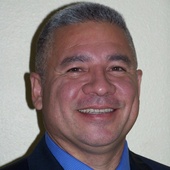Just a few days ago we held a 1031 exchange seminar at our beautiful new office in Wesley Chapel, Florida. The seminar was hosted by Brian C. Mannella, Account Executive of IPX 1031 Investment Property Exchange Services, Inc. I have asked Brian for permission to share the information provided by him & IPX 1031in an activerain-blog.
I have condensed the content for simplicity sake. If you are located in the Pasco, Pinellas, Hillsborough, & Hernando County area and wish to obtain more information on 1031 Exchanges, please let me know and I will be more than glad to get additional information for you or put you in touch directly with Brian.
Top 10 Exchange Myths
Exchange Myth # 1 - Being a "qualified" intermediary means the exchange company is licensed to do the exchange work.
•- Absolutely not true! The 1031 industry is unregulated. Be selective when shopping for a "qualified" exchange company to be your "qualified intermediary" and shop for more than just a low price. Shop for the very best in security for the exchange funds, exchange expertise and customer service.
Exchange Myth # 2 - Exchangers think there is some way to extend the exchange 45 day and 180 day deadlines.
•- Definitely not true! These deadlines are carved in stone. This sis the hardest part of the exchange. If the Exchanger is unable to identify their replacement property within the 45 day identification period, or if they fail to close within the 180 day exchange period, the exchange fails and they must pay their capital gains tax.
Exchange Myth # 3 - Exchangers think they can do an exchange without consulting with their tax or legal advisor.
•- Sound tax & Legal advice is key to a successful exchange. The purpose of the exchange is to defer the payment of capital gain taxes. A small gain or a loss as well as losses in other business activities could eliminate the need for an exchange. Only your tax advisor knows your entire tax situation. Consultation with a tax or legal advisor is essential in deciding whether an exchange is necessary or appropriate.
Exchange Myth # 4 - Exchangers think they can move into their replacement property right after the exchange.
•- Not true! Tax deferred exchanges are limited to investment and business properties. If the Exchanger quickly begins to use the property for personal use ( a second or retirement home) the IRS will disallow the exchange for failure to have appropriate "investment" intent. A rental period of one to two years prior to moving into the property is the safer way to proceed - always consult your tax or legal advisor.
Exchange Myth # 5 - Exchangers think if they sell a duplex they have to buy a duplex.
•- NoTrue! This is the best news! In exchanges of real property, all real property is considered "like kind" with all other real property. Exchangers can sell the duplex and buy any other real property that they intend to hold for investment purposes or for productive use in their trade or business.
Exchange Myth # 6 - Exchangers think that they can't do an exchange if they are buying a smaller property.
•- There will be a tax bill but...Sometimes partial exchanges can be beneficial. Depending on the gain in the relinquished property, there may still be some tax-deferral from the reinvestment into a smaller property. Always consult with your tax advisor to see if a partial exchange makes sense for you.
Exchange Myth # 7 - Exchangers think that to have a complete tax deferral all they have to do is spend their equity in purchasing the new property.
•- Not true! They must also "reinvest" their debt. If the exchanger sells a property and pays off a $75,000 mortgage they must acquire a replacement property also encumbered by a mortgage of at least $75,000. If the exchanger only reinvests the cash from their sale into a replacement property that is "free and clear" the IRS will tax them on the "debt relief" they experienced when they paid off the mortgage on the property they sold. There is one exception to this rule - cash "added in" to the exchange offsets the requirement for replacement debt.
Exchange Myth # 8 - Exchangers think they can't do an exchange if there is no 1031 "language" in their original purchase and sale agreement.
•- Not true! It isn't to late to do an exchange. The IRS does not require special 1031 language in the purchase and sale agreement. What the IRS does require, however, is that written notice of a 1031 exchange and the assignment to a " Qualified Intermidiary" be given to the buyer before the closing on the sale property.
Exchange Myth # 9 - Exchangers think exchanges are only for large property owners because they are too expensive and complex.
•- Not true in most cases. Exchanges are very modestly priced, especially when compared to the tax savings! Even though IPX 1031 is the nations largest Qualified Intermediary, over 75% of IPX1031's exchanges are for small residential properties.
Exchange Myth # 10 - Exchangers think they don't need an exchange company for a simultaneous exchange.
- No, as simple as it may seem...you can't do it yourself. Even in a beautiful "simultaneous" exchange the IRS rules require exchange documentation and prohibit the Exchanger from receiving, or having any right to receive, cash from the sale. Exchangers need a "Qualified Intermediary" for two reasons; first, to produce all of the exchange documentation that meets very specific legal requirements, second, to control the cash and move it from the sale closing to the purchase closing. Exchangers who try the " do-it-yourself" method are called "Taxpayers" after an audit.

Comments(1)